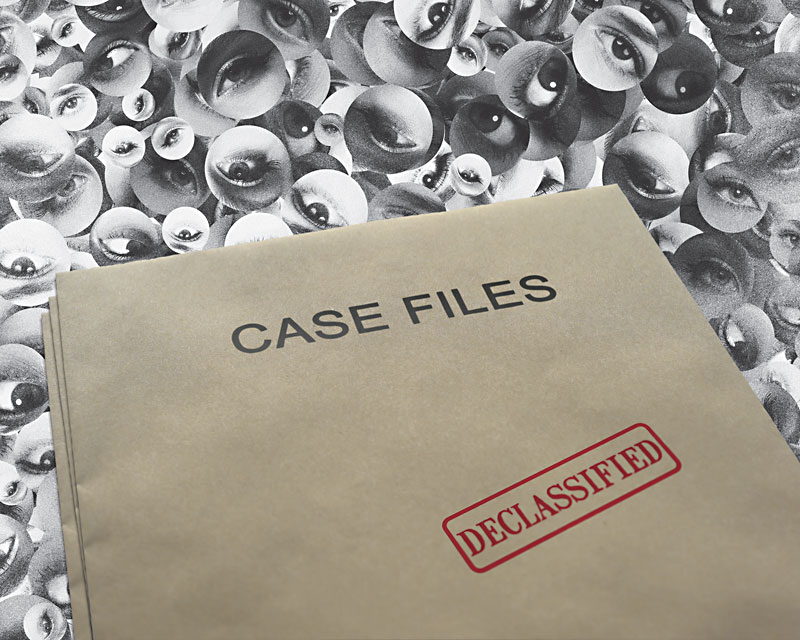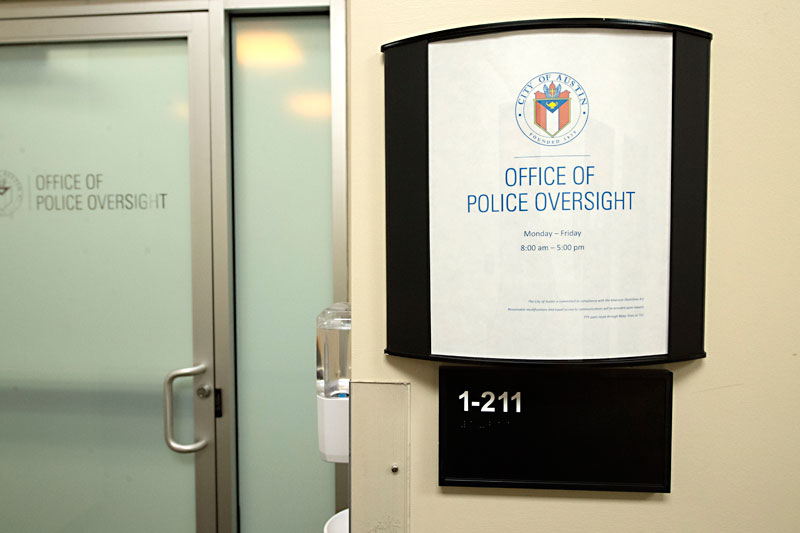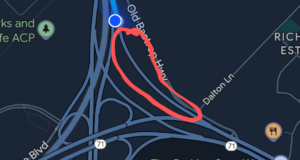Two months after a Travis County judge forced the city and Austin Police Department to abandon use of a secret police personnel file, the Chronicle has obtained a set of documents that are likely the first ever to be released from that file.
The records themselves are rather innocuous. They don’t reveal a cover-up of serious misconduct, as oversight advocates have said the existence of the secret personnel file – known as the “G file” – enables the city and APD to do. They also don’t contain false accusations that are likely to cause the investigated officer reputational harm, as the Austin Police Association has said in their push to keep the G file closed.
But, at the same time, the fact that the records released to the Chronicle, so far, are fairly unremarkable does not mean that all records that have been kept confidential in the G file will be unremarkable. For example, a pending request we have open for records relating to a former commander who resigned while under investigation for allegedly sexually assaulting a female APD employee encompasses some 12,000 pages, an official in APD’s public records division told us.
The city estimates that it will take 19 hours of labor just to compile all of those records – and another 103 hours to review them and redact as required by the Texas Public Information Act. The notion that whatever information is contained within those records would be unremarkable is implausible.
The records released to us on Oct. 15 constitute the case files for two APD Internal Affairs investigations into Austin Police Officer Joshua Lugo that occurred in 2020 and 2022. Both investigations were spurred by complaints filed through the Office of Police Oversight by Austin residents. We filed a Public Information Request seeking the records on Oct. 4.
In both IA investigations, OPO referred the complaints to APD for investigation because Lugo might have violated department policy after interacting with residents through the course of responding to a 911 call. Both complaints were “administratively closed” by APD, which means IA investigators did not find evidence of policy violation. Lugo also has an open IA investigation against him stemming from a family violence arrest in New Braunfels on Sept. 28, but APD did not release records relating to that investigation because it is ongoing.
One of the investigations was into an allegation from Justin Garza, a community member who claimed Lugo and two other officers entered his apartment without permission. In his complaint to OPO – a condensed summary of the incident that consists of just 10 sentences – Garza says the officers entered without his permission, ignoring his insistence that they were violating his rights, and that they did so without suspecting him of criminal activity. OPO said the officers’ conduct may have violated APD policies requiring officers to show an impartial attitude toward residents and that they refrain from using profane or derogatory language around residents while on duty.
“The conversation was polite and professional.” – Internal Affairs investigator characterizing police interaction
OPO complaints themselves, like the one filed by Garza, have previously been viewable by the public. But the case files built by IA investigators looking into complaints have never been public (a key difference is that the complainant and officer names were redacted). In this case, the file supplied to the Chronicle is relatively thin: a PDF containing the OPO complaint; a redacted transcript of the 911 call that preceded the officers’ interaction with Garza; memos from the IA investigator assigned to the case summarizing what they found after reviewing the 911 call, dash-cam video from the officers’ patrol car, and body-worn camera footage of their interaction with Garza; and the memo signed by an assistant chief declaring that no policy violations occurred and that the investigation should be closed.
We viewed the dash-cam video at APD headquarters because the department’s Public Information Office said they could not send us a file due to technology constraints. But the body-worn camera footage – which appears to be the primary piece of evidence used by IA in reaching their determination there was no policy violation – was not supplied to us. It is unclear, at this point, if the department still has the video.
The IA summary of the incident paints a slightly different picture than the one shared by Garza in his complaint. The interaction followed a 911 call placed by one of Garza’s neighbors around 4am on Aug. 13, 2020, because they heard Garza shouting “open your mouth” and “stop.” When the officers arrived, they told Garza they needed to check his apartment to see if anyone needed help.
Garza didn’t want them to enter. He was just yelling at his dog for chewing up his phone, he said, and no one was in need of help. The officers insisted, asking Garza to step outside of his door so they could continue talking. Later, when Garza attempted to step inside the apartment, Lugo grabbed his arm to keep him outside. Garza said he just wanted to go lock up his dog; eventually, Garza allowed the two officers in, they didn’t find anyone, and then left. “The conversation was polite and professional,” the IA investigator wrote of the interaction.
The investigator documents a private conversation between the officers complaining about Garza, but that didn’t rise to the level of a policy violation, because no one was around to hear it. The investigator’s report quotes the officers: “Eww, I just gave some of my rights up,” one of the officers said. “Next time I’m going to force my way in there,” another said. “Everyone’s a fucking lawyer,” another said.
The Lugo files are far from explosive, but they do give us an idea of the kinds of records stored in an IA case file. Other investigation records may be as unremarkable, but we don’t know. Considering the totality of G file requests that have been submitted to the city by us and other media outlets, little progress has been made on releasing the previously confidential records.
Out of 11 requests for G file materials made by the Chronicle over the past month, the Lugo files remain the only ones to have been delivered.






